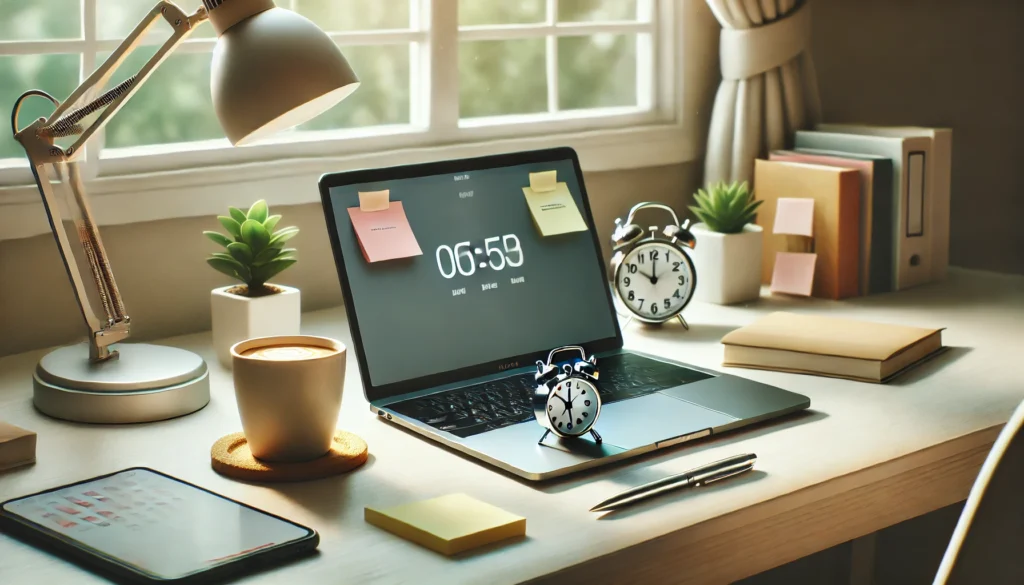How to Avoid Distractions and Stay Focused on Your Work
In today’s digital age, distractions are everywhere. From social media notifications to chatty coworkers, it can be challenging to stay focused on the task at hand. Whether you’re working from home or in an office environment, maintaining focus and productivity requires intention and discipline.
In this article, we’ll explore practical strategies for avoiding distractions and staying focused on your work. By applying these techniques, you’ll be able to improve your efficiency and accomplish more in less time.
1. Identify the Source of Your Distractions
The first step in reducing distractions is understanding where they come from. Distractions can stem from both internal sources (like lack of motivation or stress) and external sources (like noise, social media, or coworkers). Identifying these sources will help you address them directly.
Tip: Keep a distraction journal for a few days. Write down when and why you get distracted, and see if any patterns emerge. This will help you recognize which distractions are the most disruptive.
2. Create a Dedicated Workspace
One of the most effective ways to avoid distractions is to create a workspace that is free from distractions. This is especially important for those working from home, where there are often many things that can pull your attention away from work. A dedicated workspace helps signal to your brain that it’s time to focus.
Tip: If possible, designate a specific area for work. Make sure this space is quiet, organized, and separate from areas associated with relaxation or entertainment.
3. Turn Off Notifications
Smartphones and computers are often the biggest culprits when it comes to distractions. Notifications from emails, social media, and messaging apps can interrupt your workflow and pull you away from the task at hand.
Tip: Turn off non-essential notifications during your work hours. If you need to check your email or messages, set specific times to do so, rather than allowing them to constantly interrupt your work.
4. Use Time-Blocking to Stay Focused
Time-blocking is a method where you schedule specific blocks of time for particular tasks. By setting aside dedicated time to work on a project, you can maintain focus and avoid distractions. Time-blocking also ensures that you allocate enough time to each task without feeling rushed.
Tip: Use a digital planner or app to block out specific times for work, breaks, and other activities. This helps you stay organized and on track throughout the day.
5. Apply the Pomodoro Technique
The Pomodoro Technique is a time management method that encourages you to work in focused 25-minute intervals, followed by a 5-minute break. This technique is designed to help you maintain high levels of focus while preventing burnout.
Tip: Use a timer (or a Pomodoro app) to track your work intervals. After each Pomodoro session, take a short break to refresh your mind and body before starting the next session.
6. Set Clear Goals and Priorities
When you have clear goals and priorities, it’s easier to stay focused on what matters most. Knowing exactly what you need to accomplish helps you avoid getting sidetracked by less important tasks.
Tip: At the start of each day, write down your top three priorities. Focus on completing these tasks first before moving on to anything else.
7. Minimize Multitasking
While multitasking may seem efficient, research has shown that it actually reduces focus and productivity. Juggling multiple tasks at once can cause your brain to switch focus frequently, leading to mistakes and delays.
Tip: Focus on one task at a time. If you find yourself distracted by other tasks, write them down and return to them later, after finishing your current work.
8. Use Background Music or White Noise
If you work in a noisy environment, it can be hard to concentrate. In such cases, using background music or white noise can help drown out distractions and improve focus. Choose instrumental music or sounds that won’t distract you further.
Tip: Experiment with different types of music or sounds, such as lo-fi beats, classical music, or nature sounds, to find what works best for you.
9. Take Regular Breaks
While it’s important to stay focused during work intervals, taking regular breaks is essential to maintaining productivity. Working for long periods without a break can lead to burnout and decreased focus.
Tip: Follow the 50-10 rule—work for 50 minutes, then take a 10-minute break. Use this time to stretch, walk around, or do something that relaxes you before getting back to work.
10. Practice Mindfulness to Improve Focus
Mindfulness is the practice of being fully present and engaged in the task at hand. It involves paying attention to your thoughts and feelings without judgment, which helps you stay focused and avoid distractions.
Tip: Incorporate mindfulness exercises into your daily routine, such as deep breathing or short meditation sessions, to help train your brain to stay present.
Conclusion: Stay Disciplined and Be Patient with Yourself
Staying focused in a world full of distractions can be difficult, but with the right strategies, you can improve your ability to concentrate and get more done. Start by identifying the distractions in your life, creating a dedicated workspace, and applying time-management techniques like time-blocking and the Pomodoro Technique.
Remember, focus is a skill that requires practice. Be patient with yourself and recognize that distractions will happen. The key is to keep practicing these strategies and stay disciplined in your approach.


